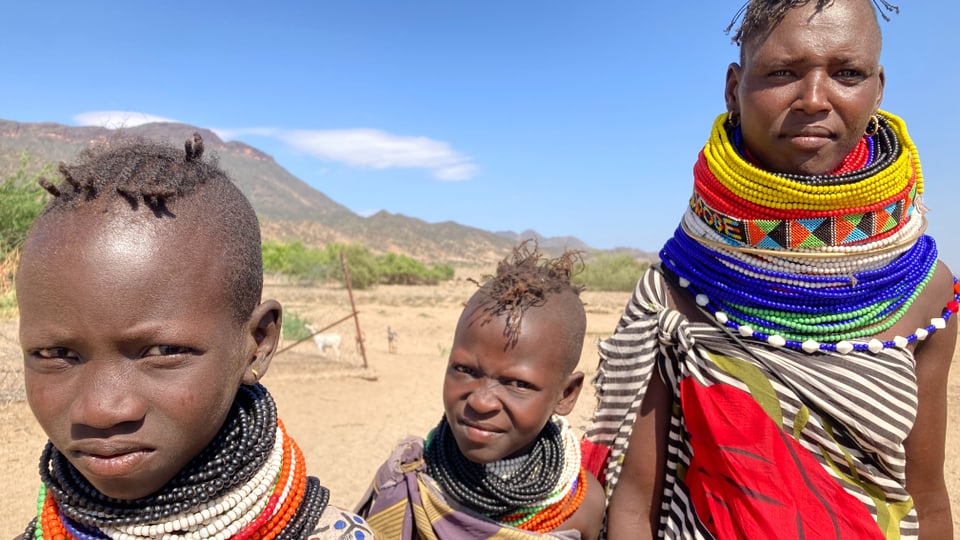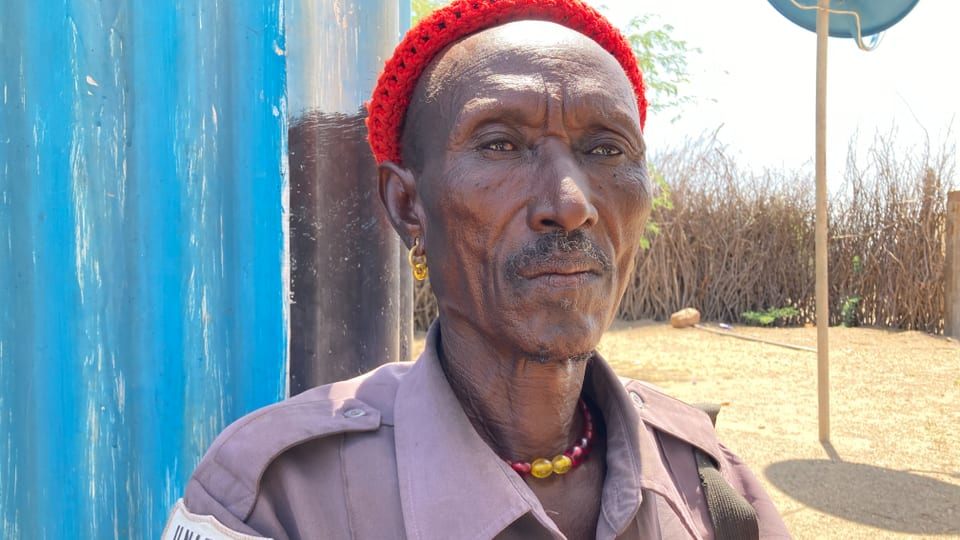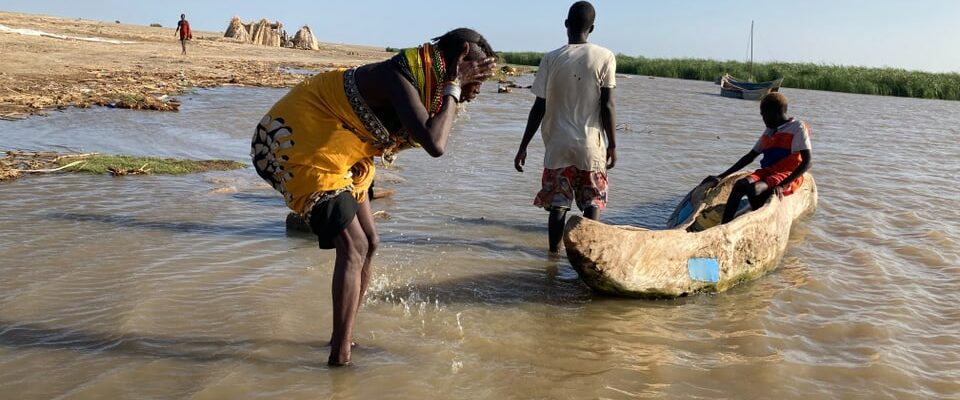Contents
The Turkana region in northern Kenya is plagued by a historic drought. It hasn’t rained properly for six years. Most Turkana, who are traditionally pastoralists, have lost most of their animals. This now forces them to become fishermen on Lake Turkana.
The wind always whistles on the shores of the largest desert lake in the world. Lake Turkana is almost a sixth the size of Switzerland. And here in Amoru, in the far north on the border with Ethiopia, the lake is not emerald green, as often depicted in tourism brochures. The water is brown here.
Ekitela Atorogita is waiting for work on this brown body of water: “I lost all my animals due to the drought. A hundred goats, twenty cows and four donkeys.” Now the 45-year-old waits for the fishermen every day. When they arrive, they carry their catch home with them. That’s what she gets paid for. That’s what she lives on today. Although working with fish is very foreign to her.
Legend:
Ekitela Atorogita is waiting for work on Lake Turkana.
SRF/Ana Lemmenmeier
«As children, we looked down on the fishermen. We saw them as useless people who had nothing and ate stinky food like fish from the lake.” But today she no longer has a choice. Her husband was killed in a clash with the Merille ethnic group, an ethnic conflict that has lasted for decades. Ekitela Atorogita says she can now deal with the smell of the fish. The income ultimately supports their six children.
Up to eight hours of walking for water
There is a lot of activity at a waterhole about a twenty-minute drive away. Children bathe, women wash, goats drink. 28-year-old Esther Arus comes here every day to fetch water. Three or four times every day. Each route takes an hour on foot.

Legend:
Nomad Esther Arus (right) has to transport water for up to eight hours every day.
SRF/Anna Lemmenmeier
The young woman spends up to eight hours a day bringing water to her home in the mountains. She only knows about the nomads’ fat years from stories told by her parents. «My parents talked about abundance. That they never lacked milk and meat.”
Time calculation according to droughts
Emeri Lobeka also remembers these fat years well. But also of the droughts that happened again and again. The 67-year-old sits under a bush in the town of Kokuro and talks. He experienced five droughts. The Turkana calendar was always based on droughts, which were given names.
The current drought is called Lotii – which means “the drought has stuck with us,” said the old man. In the end, there was nothing left of the Turkana’s wealth.

Legend:
Village elder Emeri Lobeka remembers many droughts.
SRF/Anna Lemmenmeier
The drought and infertile soil drove many Turkana to the lake, where they tried their hand at fishing. «I tried it too. But the Merille stole my net.” Resources in Turkana are becoming scarce. The pasture areas are shrinking. The farm animals died. The lake seems to be the only salvation.
But the fish is now also being fought over. This also fuels the decades-old ethnic conflict between the Merille and the Turkana. Climate change is fueling the fight for resources in Turkana.
